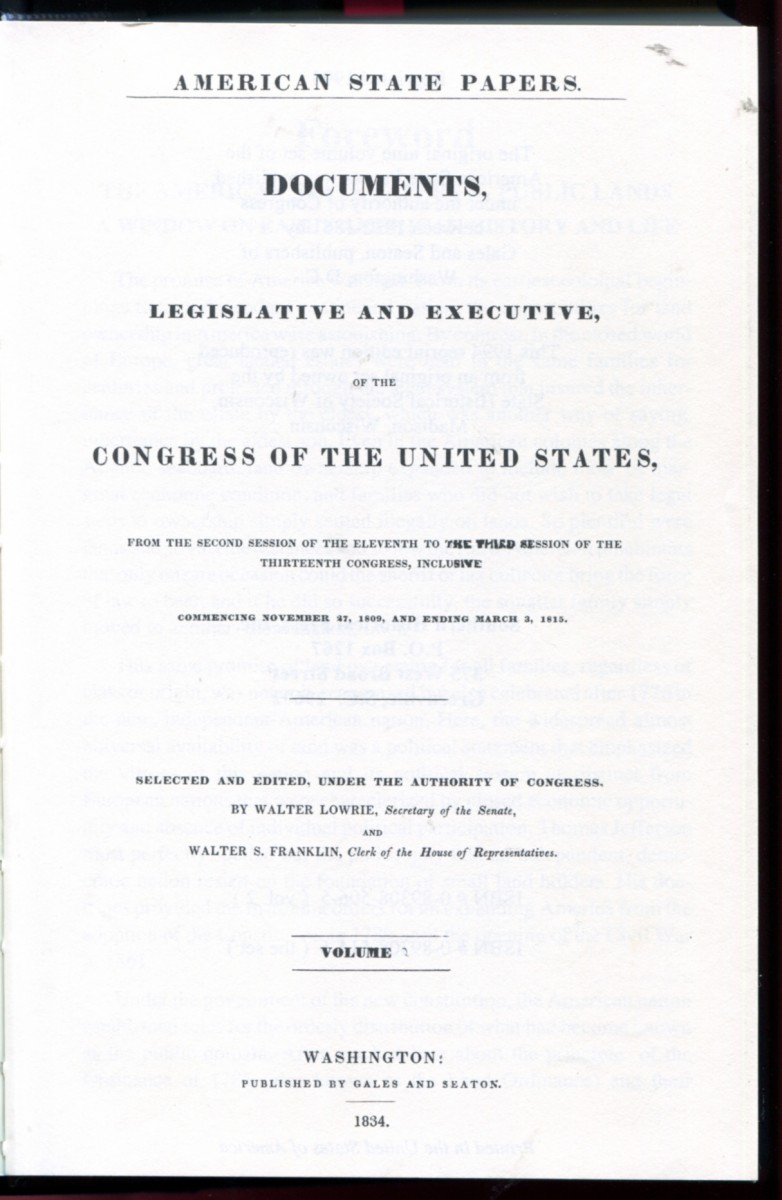
11 July 2014
Both laws and legalese offer no end of quaint terms that had real, everyday, significance in past centuries. Today we look at two bits of legal slang invoked when witnesses gave cause to question their character.
Sweating: "The questioning of a person in custody charged with crime ... by plying him with questions or by threats of other wrongful means, extorting information to be used against him."1
Swift Witness: "A term colloquially applied to a witness who is unduly zealous or partial for the side which calls him, and who betrays his bias by his extreme readiness to answer questions or volunteer information."2
While toiling in other fields, today, we stumbled upon several delightful incidences of both. In the wake of the Louisiana Purchase, both the U.S. Land Office and the U.S. Senate labored mightily to sort out all the land claims filed with them by individuals who had settled that territory under the French, Spanish, and English crowns. When claimants had deeds or wills to prove their ownership, they filed copies. When they didn't, they had "knowledgeable" neighbors testify on their behalf. Therein lay the root of today's discussion: the character of those witnesses who swore on their oath to the validity of certain land claims.
On 31 December 1810, Albert Gallatin, President of the Senate, filed a report with the Treasury Department that barely veiled his disgust with fourteen "swift witnesses" in the district of the Kaskaskia Land Office. He also lauded the "sweating" that the Kaskaskia commissioners had attempted. His character assessments of those witnesses offer priceless morsels of history (and, perhaps, a taste of cultural prejudice as well). Let's sample 2 of them:
"Jean B. Montrieulle—This is a Frenchman, ignorant, without property or standing in society. After having given in, perhaps, about fifty depositions in favor of the principal land speculators ... he was called forward by the Board for re-examinination [and] acknowledged himself, on oath, to have been guilty, in a a very great number of cases, of perjury; he was probably induced to this, by being told that the commisioners would eventually entrap him, and that his only safe course was to come out with an honest acknowledgment. "
"Simon Toiton—This is a Frenchman, without property, fond of liquor, and who has been clerk of the Roman Catholic parish of Prairie du Roches; after having given perhaps two hundred depositions in favor of John Edgar, William and Robert Morrison, and some others, he was induced, either by compensation, by fear, or by impossibility of obtaining absolution on any other terms, to come forward ... and declare on his oath that the said depositions were false, and that, in giving them in, he had a regard to something beyond the truth."3
Both swift witnesses and sweating played a significant role in the settling of these thousands of land claims, not just in the Kaskaskia District but throughout all of Upper and Lower Louisiana.
SOURCES
1. Henry Campbell Black, Black's Law Dictionary, 4th ed. (St. Paul, Minn.: West Publishing Co., 1951), 1617.
2. Ibid., 1618.
3. U.S. Congress, American State Papers: Documents Legislative and Executive of the Congress of the United States, 38 vols. (Washington, D.C.: Gales and Seaton, 1832–61), Class 8, Public Lands (8 vols.), 2: 126. If you're not familiar with this massive set of published government documents relating to America's frontier, you'll find a useful discussion of them at EE 13.30–33.